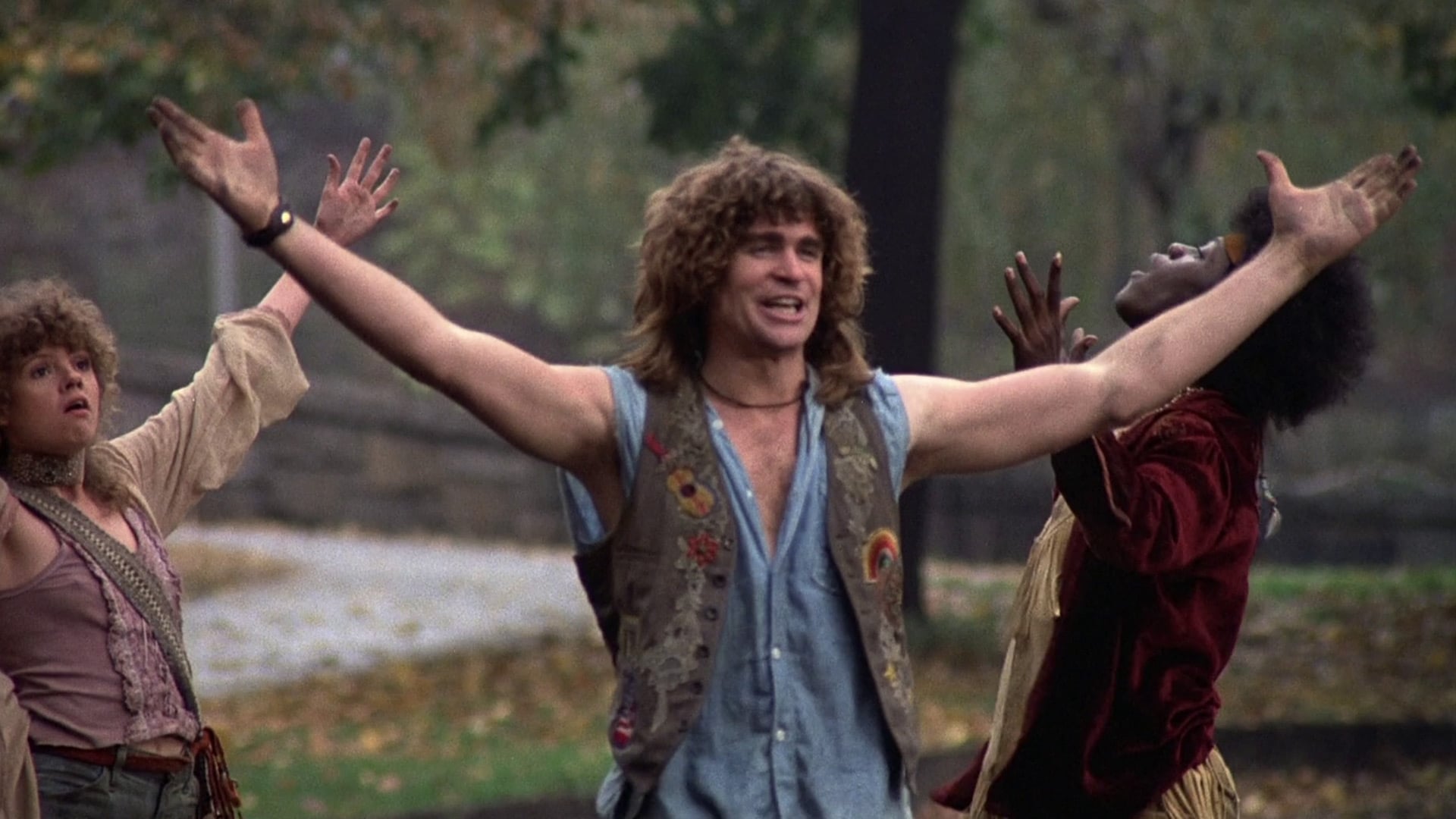There was a generation for whom the rebellion against the American dream was a kind of pattern, a wishful dream.
Now that the actor who played Berger, Treat Williams, has motored into death and immortality at the same time, let's see what happened to Berger, who he played.
What did this strange, teasing New York hippie mean to us, who became and remained a symbol of rebellion and non-conformist youth.
Because the Hair , who wouldn't know, is a work of pop culture, with drugs, anti-war, and nudity. Hair it was already scheduled to be shown on Broadway. But not everyone was a fan of it.
It also happened that the artists who went on tour were scolded, belittled, and almost physically assaulted. In fact, in Massachusetts, the theater was threatened with a bomb attack if they presented Hair . But even this was dealt with with a shovel: the play was banned in 1970, but the Supreme Court overturned it. Perhaps few people know that the creation of the stage work (creators: Gerome Ragni and James Rado) owes a lot to a theater producer of Hungarian origin, József Papp, or as he was called in the new world, Joseph Papp, who after some pondering and persuasion recommended it and even brought it in to the Public Theater, which is currently under renovation, the play, which really raised the spirits.
the Hair was also the Eastern European director Milos Forman, who in addition to the Oscars swept the world with countless accolades, but he did not receive any for Hair By the way, he wanted to present the play in Prague in 1968 even in its new age, but it would have been difficult to do so in the shadow of the Soviet tanks. And he - the director of Tűz van, bájm already a "golden statue candidate" - was forced to defect.
Why do I mention this Eastern Europeanness in connection with the film and musical?
Perhaps because there was a generation for whom the rebellion against the American dream was a kind of pattern, a wishful dream. On one side is the frosted Marilyn Monroe world (which, of course, is also Willy Lohman's fallen world), on the other side are young people with long hair who join gangs, are rebellious and often aggressive. Of course, they could also be scary for the beautiful new world that favors the usual life path and focuses on money and career.
But what value does the film show, and what does it convey to the societies of that time and today?
Maybe that these guys and girls, whose behavior and eccentricities are so outrageous, are people just like us. In fact! They have huge hearts. Berger reluctantly goes to Vietnam instead of his friend, to the war, which Americans usually fight in a foreign land, and dies a "heroic death" there. In other words, he is destroyed by the very system he is rebelling against.
At home, the Great Generation - as Ferenc András presents in his film - is serving along the lines of small rebellions. In suits and ties, they listen to music and dance in the Youth Park, which is vigilantly watched by the police of the communist regime. Long hair and jeans originally meant imperialist degeneracy, and then came the rubber stick, the cell, and the zero machine.
They didn't make a lot of jokes, the Hungarian Berger couldn't jump onto a laid, candlelit dining table and dance on it, if only because there weren't any such nicely laid tables, at most for the communist elite.
I've gone crazy and casual/My heart beats differently, man!/It's so bold, but don't be afraid/I couldn't live any other way! - sings the main character in the iconic song, then: And this is a butt, and here is the arm, and here is the "hanging", what do you want?/And here is my blood, I live a long time ago! Thank you very much, don't be sorry!
The "cream" of society stares at the production with open mouths, many shocked, others with a slightly mischievous inner smile, because behind the many false hypocrisies and masks, everyone's true face is indeed there. Behind the masks is the man, there is the fool and the casual and daring, whose "charm is worth a thousand treasures".
But of course, if someone steps out of the world of delusions and reveals himself honestly, the others will run back behind their familiar and hated ramparts. And most likely to become a victim who violates the rules of ramparts.
Hair was presented with surprising speed, already one year after its production, in 1980 .
Double twist: those who yearn for the American life will be destroyed by imperialism - it was intended as a negative example. Just like Déry - and few people know this - he intended the "Imagined Report" as a dismissive pamphlet, but it turned out to be a fantastic feeling of life spanning generations. Of course, we knew at the time that this film was also about us, those behind the Iron Curtain, who are not even allowed to rebel against a deeply petty-bourgeois, old-fashioned and primitive, "potato soup should be potato soup" system, in which a small plot of land and the Trabant was the highest attainable "Soviet" dream.
The rebellion also required defecting
Perhaps it is no coincidence that Hungarian and Eastern European names appear on the cast list of the big rebellious overseas films. Száll a kakukk fészkére and Hair are Milos Forman's creations, Szelíd bikers was directed by László Kovács, who together with the also world-famous Vilmos Zsigmond took countless shots of the ruined Hungarian capital in 1956, and then smuggled the valuable film documents to America so that the world could see them. how they trample the will of a people into the mud.
However, let's see what Bergerism has become in America!
Woke, the LGBTQ, the BLM movement, the anti-white movement today are not a pure-hearted rebellion against hypocrisy, but an official government policy that disrupts the normal human way of life. Mainly the will of the Democratic Party and mainstream media. Today it is the Bergers who are rebelling against this. Those who still want to live in a real family and raise their children, don't want Drag Queen shows that are slowly mandatory in kindergartens and schools, more than two genders, don't want the rainbow, drug-fuelled journey of individualistic self-courses.
They don't want to slip into the world of tasteless and silly hypocrisy. They want an old dream where everything is orderly, beautiful and free.
Look! Today we are the Bergers!
Featured Image: Facebook












